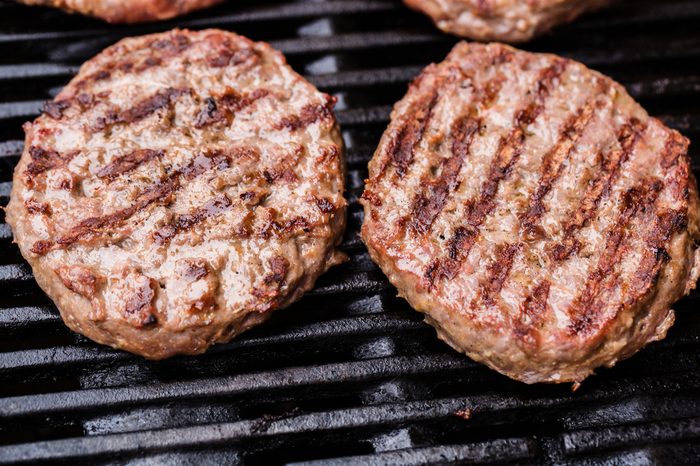
Undercooked meat
The number one source of food poisoning is undercooked meat. “Most raw poultry contains Campylobacter. It also may contain Salmonella, Clostridium perfringens, and other bacteria. Raw meat may contain Salmonella, E. coli, Yersinia, and other bacteria,” according to the Centers for Disease Control and Prevention. Thoroughly cooking poultry and meat will destroy the bacteria, but you can’t tell if the meat is properly cooked just by looking. Always use a meat thermometer and cook food to a safe internal temperature.
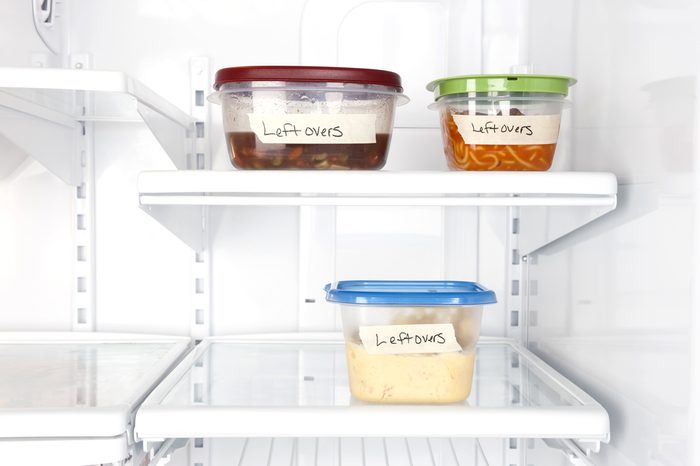
Leftover meat
Just because you cooked it once doesn’t mean it’s safe after it’s been relegated to leftovers. Leftovers should be refrigerated at 40°F or colder within 2 hours after preparation. Large cuts of meat, such as roasts or a whole turkey, should be divided into smaller quantities for refrigeration so they’ll cool quickly enough to prevent bacteria from growing. If you haven’t taken these precautions, when you use your leftovers in any of these leftovers recipes, you will need to cook your meat to the internal temperatures listed here. And please remember that when you use leftover meat in a cold salad, the same rule applies.
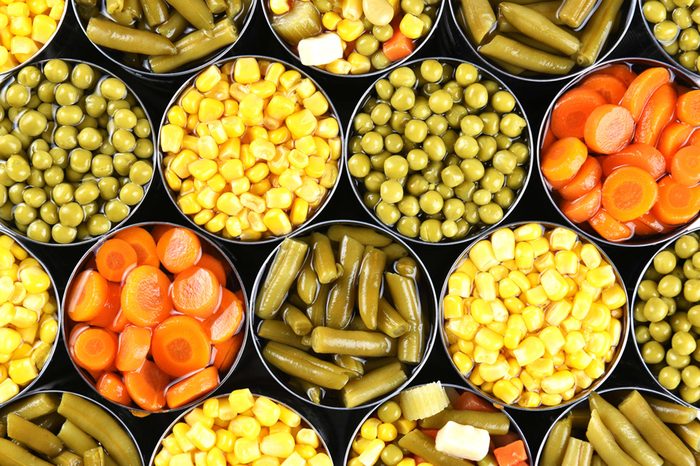
Canned foods
If your canned food is deeply dented, don’t eat it, advises the USDA Food Safety and Inspection Service. “A deep dent is one that you can lay your finger into. Deep dents often have sharp points.” A sharp dent on either the top or side seam can damage the seam and allow bacteria to enter the can, and you don’t want that. (These are the fast food “myths” that are actually wrong.)
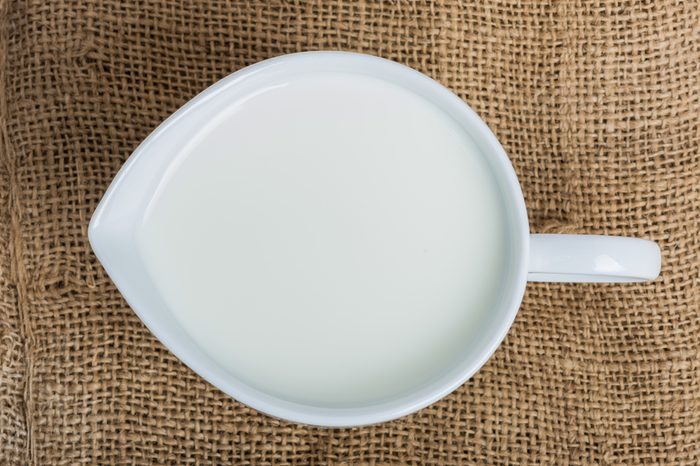
Raw (unpasteurized) milk
Raw milk can carry harmful bacteria that can make you very sick. They include Campylobacter, Cryptosporidium, E. coli, Listeria, and Salmonella. Although listeriosis (the infection caused by Listeria) is rare, pregnant women are less capable of fighting it off, which means that it can be more deadly in pregnant women. In addition, it’s possible for the unborn baby to become ill as well. Older adults and people that have a compromised immune system are also in greater danger than the general population.
It’s best, therefore, for everyone to drink pasteurized milk. For those at greater risk, take the extra precaution of not eating any dairy products made from unpasteurized milk (raw cheeses, for example).
(These are the foods you should always wash before eating.)
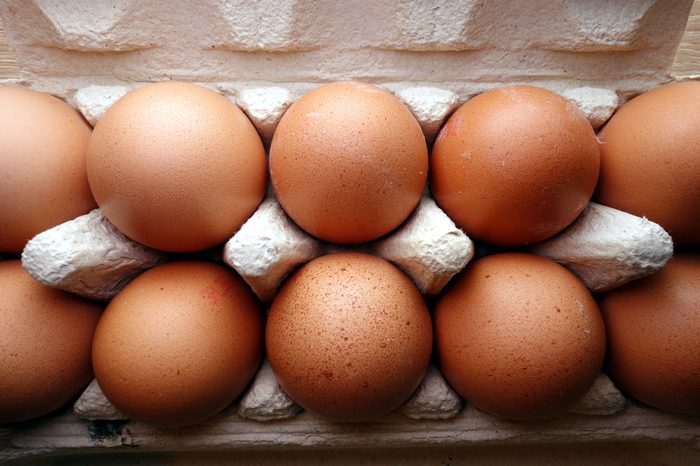
Raw eggs
Eggs can contain Salmonella even if the egg looks clean and is uncracked. To avoid getting sick, cook eggs until the yolks and whites are firm. Cook foods containing eggs thoroughly. Keep your eggs at 40°F or colder, and don’t eat raw cookie dough or cake batter. Do you know the difference between cage-free and free-range eggs?
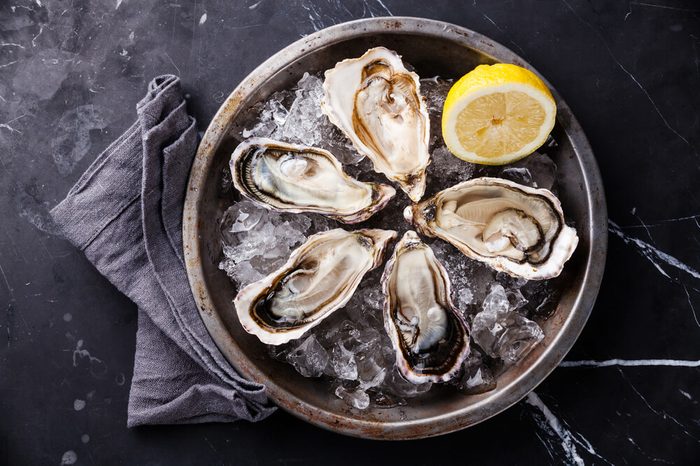
Raw shellfish
Oysters and other filter-feeding shellfish can contain viruses and bacteria. Raw or undercooked oysters can contain Vibrio bacteria, which can lead to an infection called vibriosis. Oysters harvested from contaminated waters can contain norovirus, which causes vomiting and diarrhea. To avoid food poisoning, cook your seafood. Use this guide to find the right temperature for each type of meat, poultry, and seafood.
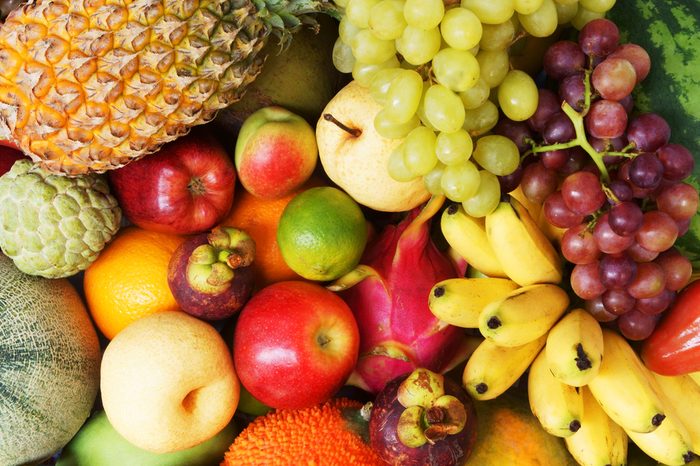
Unwashed fruits and veggies
Eating fresh produce provides important health benefits, but sometimes raw fruits and vegetables may contain Salmonella, E. coli, Listeria, and other bacteria. Contamination can occur anytime from the farm right to the table, including via cross-contamination in your own kitchen. So always wash your produce carefully. If your immune system is compromised for any reason (for example, if you’re undergoing chemotherapy, or you’ve recently had surgery), then wash it at least twice before eating.
By the way, this is true for fruits with peels as well, according to registered dietitian Jodi Danen. That’s because you’re either touching the peel with your fingers or cutting through the peel, thereby cross-contaminating the flesh with germs from the peel. In addition, Danen points out that once fruits and veggies are sliced, they must be refrigerated within a four-hour window to prevent bacterial growth. If you’re a bit under the weather, these are the foods you should be eating if you have a cold.
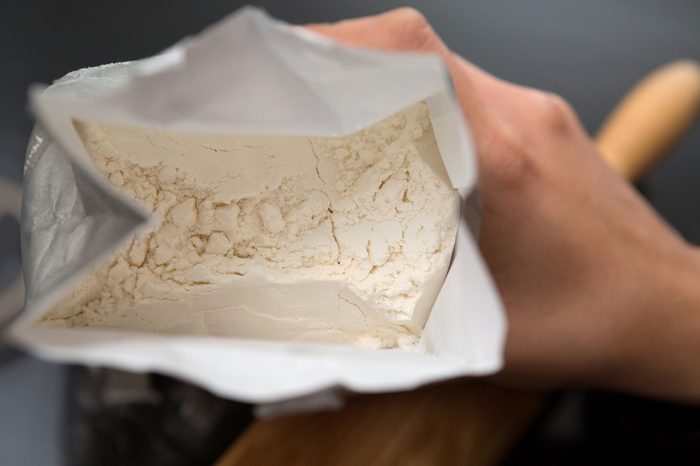
Raw flour
You’re probably thinking, “Ew! Why would I ever eat raw flour?” Hello, cookie dough? Harmful germs can contaminate grain while it’s still in the field, at every step of production, and after it enters your home. You’re safe from those germs once you cook the flour. So just say no to licking the bowl. Here’s some more information about the dangers of eating raw flour (and raw dough and batter in general).
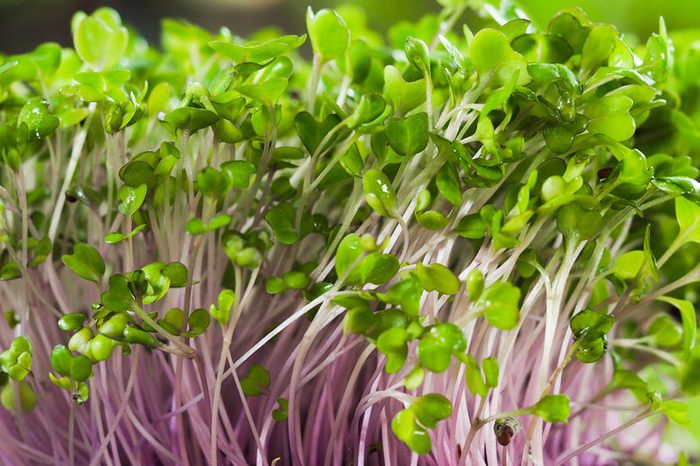
Raw sprouts
Wait, what? Aren’t sprouts like the ultimate health food? Yes, but, no. Sprouts are grown in warm, wet conditions, which makes them basically a petri dish for germs (including Salmonella, E. coli, and Listeria). Thoroughly cooking sprouts kills the harmful germs. So, if you don’t totally LOVE sprouts, think about cooking them rather than serving them raw on your sandwiches and salads.
For more useful information on foodborne illnesses, Bernard Camins, MD, chief epidemiologist at the University of Alabama at Birmingham has put together this fact sheet that’s definitely worth a look. Next, read through these 20 extraordinary uses for everyday foods.
